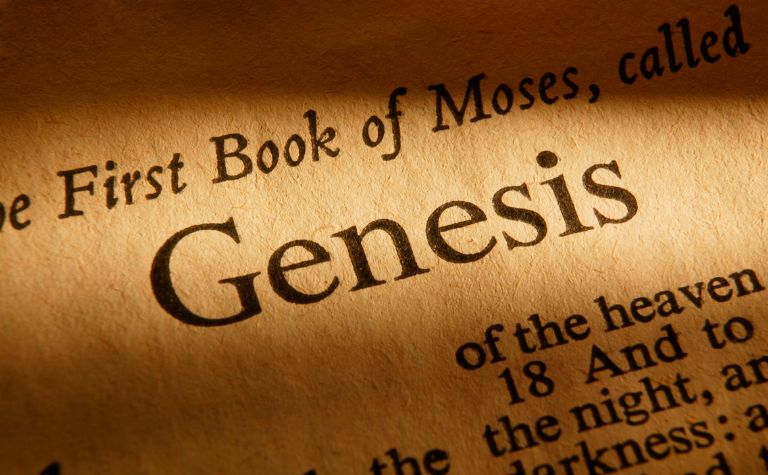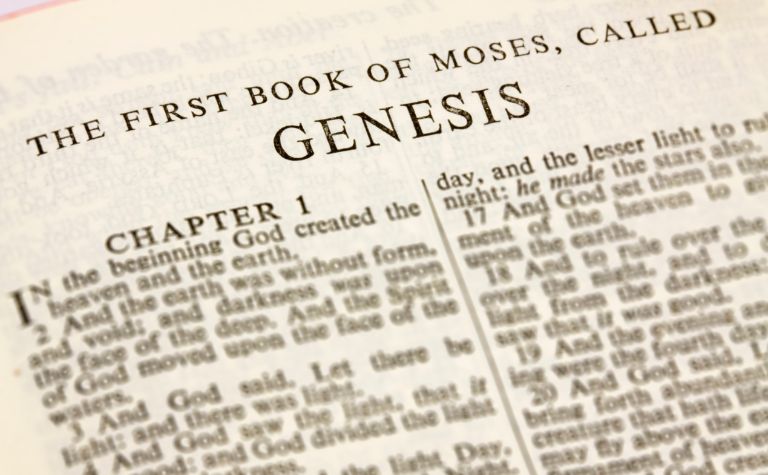The Bible mentions that most people live into their 70s and 80s (Psa. 90:10). Yet this wasn’t always the case. In the world before the flood in Noah’s day, the book of Genesis reveals that people often lived much longer. Scholars debate the reason for this. Nevertheless, many people are curious to know who the oldest person in the Bible was.
In the Bible, Methuselah was the oldest person ever. He lived for 969 years in the world before the flood. Methuselah was the seventh generation after Adam. He was Enoch’s son, Lamech’s father, and Noah’s grandfather. The second oldest was Jared, Methuselah’s grandfather, who lived 962 years.
Where does Genesis mention Methuselah? What does it say about him? Why is his father so well-known? How long did Methuselah’s famous family members live like Adam and Noah? Why did people live so long at that time? Where does the New Testament mention Methuselah? Keep reading to learn the answers to these questions and others.
Also, see How Old Was Adam When He Died? to learn more.

Methuselah in the Book of Genesis
The first major section in the book of Genesis (chapters 1-11) includes the biographies of Adam and Noah. Genesis mentions Methuselah in this context.
Following the creation account (Gen. 1), Adam’s story starts with God’s creation of him and his wife, Eve (Gen. 2). Then it records their fall into sin (Gen. 3). The narrative records the couple’s children and how sin affected them next (Gen. 4).
Noah’s story (Gen. 6-9) starts with describing how sin had permeated the world and the hearts of people (Gen. 6:5-8). However, hope isn’t lost because Noah was righteous in God’s sight (Gen. 6:9). Therefore, God destroyed the world with a flood but used an ark to save Noah and his family (Gen. 6:11-9:17).
From Adam to Noah
Genesis 5 links the narratives of Adam (Gen. 2-4) and Noah (Gen. 6-9). It contains a genealogy that traces the generations between the men. The passage includes ten fathers and the age at which they died. Methuselah is the 8th name on the list and the 7th generation after Adam.
| Patriarch | Genesis | Age |
|---|---|---|
| Adam | 5:5 | Thus all the days that Adam lived were 930 years, and he died. |
| Seth | 5:8 | Thus all the days of Seth were 912 years, and he died. |
| Enosh | 5:11 | Thus all the days of Enosh were 905 years, and he died. |
| Kenan | 5:14 | Thus all the days of Kenan were 910 years, and he died. |
| Mahalalel | 5:17 | Thus all the days of Mahalalel were 895 years, and he died. |
| Patriarch | Genesis | Age |
|---|---|---|
| Jared | 5:20 | Thus all the days of Jared were 962 years, and he died. |
| Enoch | 5:23-24 | Thus all the days of Enoch were 365 years. Enoch walked with God, and he was not, for God took him. |
| Methuselah | 5:27 | Thus all the days of Methuselah were 969 years, and he died. |
| Lamech | 5:31 | Thus all the days of Lamech were 777 years, and he died. |
| Noah | 9:29 | All the days of Noah were 950 years, and he died. |
Genesis commentator Kenneth Mathews writes, “Methuselah’s 969 years distinguish him as the longest-living person in the Bible. Not only does chap. 5 indicate the longevity of ancient man but it also may reflect a time when human life developed at a slower pace.” [1]
Bible scholar Victor Hamilton adds, “The fact that the longest living human does not reach the age of 1000 years, which is a single ‘day’ in God’s life (Ps. 90:4), is another illustration of the Scripture’s refusal to grant godlike status to its heroic mortals.” [2]
Also, see How Old Was Moses When He Died? to learn more.

The Bible Mentions the Oldest Person Seven Times
The Bible refers to Methuselah seven times. The Old Testament mentions him six times, and the New refers to him once. Five of the six times the Old Testament mentions him occur in Genesis 5. The context of all seven references is a genealogy.
Methuselah in Enoch’s line
The first time Genesis mentions Methuselah, it identifies him as Enoch’s son. Then, like other fathers on the list, the genealogy mentions how old Enoch was when Methuselah was born.
“When Enoch had lived 65 years, he fathered Methuselah. Enoch walked with God after he fathered Methuselah 300 years and had other sons and daughters” (Gen. 5:21-22, ESV).
Like other names on the list, the description ends with Enoch’s age at death, 365 (Gen. 5:24). Then, the genealogy momentarily pauses to inform the reader of his devotion to God.
Unlike the other men on the list, the passage reveals that Enoch didn’t physically die: “Enoch walked with God, and he was not, for God took him” (Gen. 5:24).
Methuselah’s life summary
Methuselah follows Enoch in the genealogy. The description says he was 187 years old when his wife gave birth to Lamech, after which he lived another 782 years.
“When Methuselah had lived 187 years, he fathered Lamech. Methuselah lived after he fathered Lamech 782 years and had other sons and daughters” (Gen. 5:25-26, ESV).
Verse 27 summarizes the years of his life: “Thus all the days of Methuselah were 969 years, and he died.” The Bible doesn’t emphasize Methuselah’s age. Instead, it’s more concerned with highlighting people’s devotion to God, as illustrated in the descriptions of Enoch and Noah.
1 Chronciles and Luke mention Methuselah
1 Chronicles 1:1-3 lists the names in Genesis 5, including Methuselah’s, in a passage that traces the line of Adam to Abraham: “Adam, Seth, Enosh; Kenan, Mahalalel, Jared; Enoch, Methuselah, Lamech; Noah, Shem, Ham, and Japheth.”
Luke 3:23-38 traces the line from Jesus Christ to Adam. Verse 37 mentions Methuselah: “the son of Methuselah, the son of Enoch, the son of Jared, the son of Mahalaleel, the son of Cainan” (ESV).
Also, see How Old Was Melchizedek in the Bible? to learn more.

Death In Genesis 5
When sin entered the world through Adam and Eve’s disobedience, it affected the entire world, including every member of the human race. As a result, all would experience physical death.
The Apostle Paul speaks to this truth when he writes, “For the wages of sin is death, but the free gift of God is eternal life in Christ Jesus our Lord” (Rom. 6:23, ESV). The Greek word translated “wages” is opsonion (ὀψώνιον). It’s a financial term that means the expense or cost of sin is physical death.
And then he died
Other genealogies in the Bible don’t include the ages of people when they died or the phrase “and then he died.” The reason this one does may be to illustrate the truth about what God said about disobedience in the Garden of Eden.
“But of the tree of the knowledge of good and evil you shall not eat, for in the day that you eat of it you shall surely die” (Gen. 2:17, ESV, emphasis added).
While Adam and Eve didn’t die immediately, they did experience death eventually. Furthermore, their trajectory toward death via the aging process was likely immediate.
However, the Old Testament mentions two rare occasions when God directly intervened and spared people physical death. One occurs in Genesis 5. God took Enoch (Gen. 5:23-24, see above) and Elijah (2 Kings 2:1-14) from the world before either experienced physical death.
Life in Jesus Christ
Aside from Enoch and Elijah, physical death is the normal experience for human beings because of sin (Rom. 6:23). Some sinners may live longer than others, but physical death is inevitable for all.
Yet Jesus, through his death and resurrection, overcame sin and death. So while people still die, they can experience new life after death.
This fact led Paul to praise God. “Death is swallowed up in victory. O death, where is your victory? O death, where is your sting? The sting of death is sin, and the power of sin is the law. But thanks be to God, who gives us the victory through our Lord Jesus Christ” (1 Cor. 15:54-57, ESV).
Also, see How Old Was When He Died Abraham? to learn more.
References:
[1] Genesis 1:1-11:27 by Kenneth Mathews. NAC. p. 315.
[2] The Book of Genesis, Chapters 1-17. NICOT. p. 258.
Related Questions
A lot of people know that Jesus of Nazareth lived a long time ago. They may even know that he was a Jewish man born at the time of the Roman Empire. Yet, they are unclear about exactly when he was on...
Catholic vs. Protestant vs. Orthodox: What's the Difference?
Roman Catholicism, Protestant Christianity, and the Eastern Orthodox Church are the three historical branches of the Christian religion. Each tradition traces its doctrines and practices to the New...
